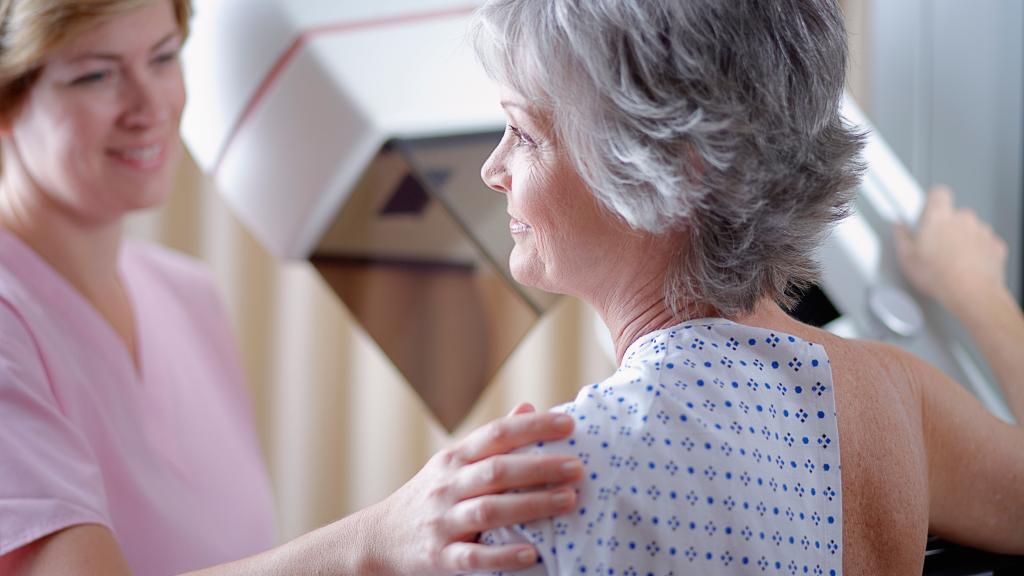
Study asks patients with form of advanced breast cancer: How can we support your quality of life needs?
The Irish Cancer Society is calling on metastatic breast cancer patients to take part in a study to further understand and address their quality of life needs.
The research is being conducted by a group of experts from across Ireland in the areas of oncology, nursing, psychology along with patient representatives, and aims to record the life experiences of up to 100 patients with metastatic breast cancer.
Metastatic breast cancer is diagnosed when cells from the original breast tumour have spread beyond the breast to other parts of the body, and is classed as Stage 4 cancer.
Most recent figures showed that 2,983 people received a breast cancer diagnosis in 2013, the vast majority of whom were women. Anecdotal evidence from a recent meeting of Irish Consultant Medical Oncologists estimated that around 700 women present with metastatic breast cancer every year, and up to 3,000 women are currently living with the advanced disease in Ireland.
It is hoped that the findings of the study will lead to a better overall understanding of quality of life in terms of fatigue and cognitive concerns (for example, difficulty in remembering) of metastatic breast cancer patients in Ireland. The research will also begin to examine if delivering supports through the Irish Cancer Society’s Cancer Nurseline to address these issues will benefit these patients.
Commenting on the study, Dr Ronda Barron of the School of Nursing and Human Sciences in Dublin City University, one of the investigators working on this study said:
“A diagnosis of metastatic breast cancer can be devastating and lead to an uncertain road ahead when it comes to living with the effects of the disease and its treatment.
“Due to medical advances, more individuals are living longer lives with the disease than ever before. Patients are often trying to cope with the trauma of their diagnosis all the while undergoing intense medical treatment, and this can have profound effects on their quality of life. Patients can experience severe fatigue, stress and over time begin to develop cognitive concerns such as, difficulty concentrating or remembering daily tasks.
“Now more than ever it is imperative that healthcare professionals and the Irish Cancer Society better understand these patients’ experiences so that supports like the Cancer Nurseline can begin to be tailored to meet their needs.”
The Irish Cancer Society’s Freephone Cancer Nurseline is staffed by specialist cancer nurses and provides comprehensive support, advice and information to patients, carers, healthcare professionals and the general public. In 2015 almost 1,300 calls to the Nurseline were from breast cancer patients in need of advice.
All aspects of this research will be conducted through the Cancer Nurseline. Patients interested and eligible to take part in the study will be invited to take around four phone calls from the Nurseline over a 12-week period.
During the first call participants will be asked to provide information on their background (demographics and diagnosis) and complete a series of standardised questionnaires on quality of life, fatigue and cognitive concerns.
After this call, participants will be randomly allocated to one of two Irish Cancer Society support service programmes. The first consists of the package of supports which the Irish Cancer Service already provides to cancer patients, such as per-to-peer support and access to counselling sessions. The second programme is a modified version of this package. Following intervention, participants will be asked to complete some of the same questionnaires again (quality of life, fatigue and cognitive concerns). Participants will also take part in a brief interview at the end of the study to better understand their experiences and opinions of the study process and outcomes.
Cancer Nurseline Manager Naomi Fitzgibbon added: “Our Nurseline staff work tirelessly to address the needs of our callers who seek support and advice on cancer for themselves or a loved one. Between 2003 and 2013 breast cancer diagnoses increased by one third. We constantly strive to ensure all our services are relevant and accessible, so this opportunity to assess the feasibility of the Cancer Nurseline to deliver supports to metastatic breast cancer patients and to improve our services is hugely welcome and valuable. For this reason, I encourage anyone who would like to participate in the study to please get involved.”
If you are a metastatic breast cancer patient and would like to know more about this research study, please contact the Cancer Nurseline on Freephone 1800 200 700 or email cancernurseline@irishcancer.ie.
The Irish Cancer Society’s Cancer Nurseline is open Monday-Friday, 10am-4pm and provides information and support on any aspect of cancer. You can also drop into one of our 13 Daffodil Centres in hospitals nationwide.
